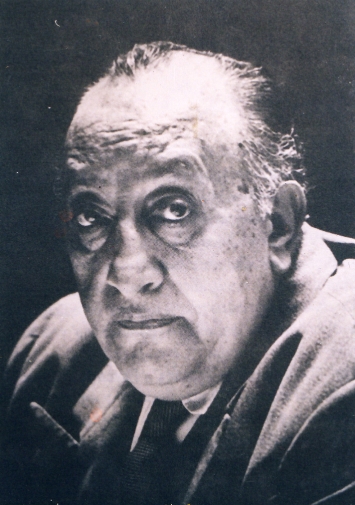Miguel Angel Asturias (Miguel Angel Asturias)

Author. Recipient of the 1967 Nobel Prize. Born in Guatemala, the son of Ernesto Asturias, a magistrate of the Supreme Court of Justice, and María Rosales, a schoolteacher. Miguel spent his childhood and adolescence in his native country. He studied for his baccalaureate at the state high school and later took a law degree at the University of San Carlos. His thesis on “The Social Problem of the Indian” was published in 1923. Miguel studied anthropology in Paris at the Sorbonne from 1923 to 1928 and encountered French translations of Mayan writings. Under the influence of Georges Raynaud, his teacher at the Sorbonne, he developed a deep concern for the Mayan culture and in 1925 he translated the sacred Mayan text Popol Vuh into Spanish. During these years he also began to write poetry and fiction. In 1923 he founded the magazine Tiempos Nuevos. In 1928 Miguel returned for a short time to Guatemala, where he lectured at the Popular University. These lecture were collected in a volume entitled La arquitectura de la vida nueva (Architecture of the New Life), 1928. He then went back to Paris, where he finished his Leyendas de Guatemala (Legends of Guatemala), 1930. Published in Madrid, the book was translated into French by Francis de Miomandre, who sent his translation to Paul Valéry. The French poet was greatly impressed, and his letter to Miomandre was used as the preface to the 1931 edition published in the Cahiers du Sud series. The same year, Leyendas de Guatemala received the Silla Monsegur Prize, a reward for the best Spanish-American book published in France. In the 1940s he entered diplomatic career, and served as a cultural attaché in Mexico from 1945 to 1947 and held a number of other diplomatic posts. From 1947 to 1953 he was in Buenos Aires, in Paris in 1952 and 1953, and as ambassador to San Salvador in 1953 to 1954. After separating from his first wife Clemencia Amado in 1946, Miguel became interested in the theories of Freud and Jung. In 1948 he returned to Guatemala for a few months, during which time he wrote his novel Viento fuerte (Strong Wind), 1950, an indictment of the effect of North American imperialism on the economic realities of his country. That same year, the second edition of El Señor Presidente was published in Buenos Aires. When the government of President Jacobo Arbenz Guzman fell in 1954, Miguel went into exile in Argentina, his wife’s native country, where he remained until 1962. A year later, the Argentine publisher Losada brought out his novel Mulata de tal (Mulata). This story, a surrealistic blend of Indian legends, tells of a peasant whose greed and lust consign him to a dark belief in material power from which, Asturias warns us, there is only one hope for salvation: universal love. In 1966 Miguel was awarded the Lenin Peace Prize, he is only the second Latin American to receive this honor. In the same year, he was appointed the Guatemalan ambassador to France by President Julio Mendez Montenegro. He died at the age of 74. (bio by: Shock)
Born
- October, 19, 1899
- Guatemala
Died
- June, 06, 1974
- Spain
Cemetery
- Cimetière du Père Lachaise
- France

